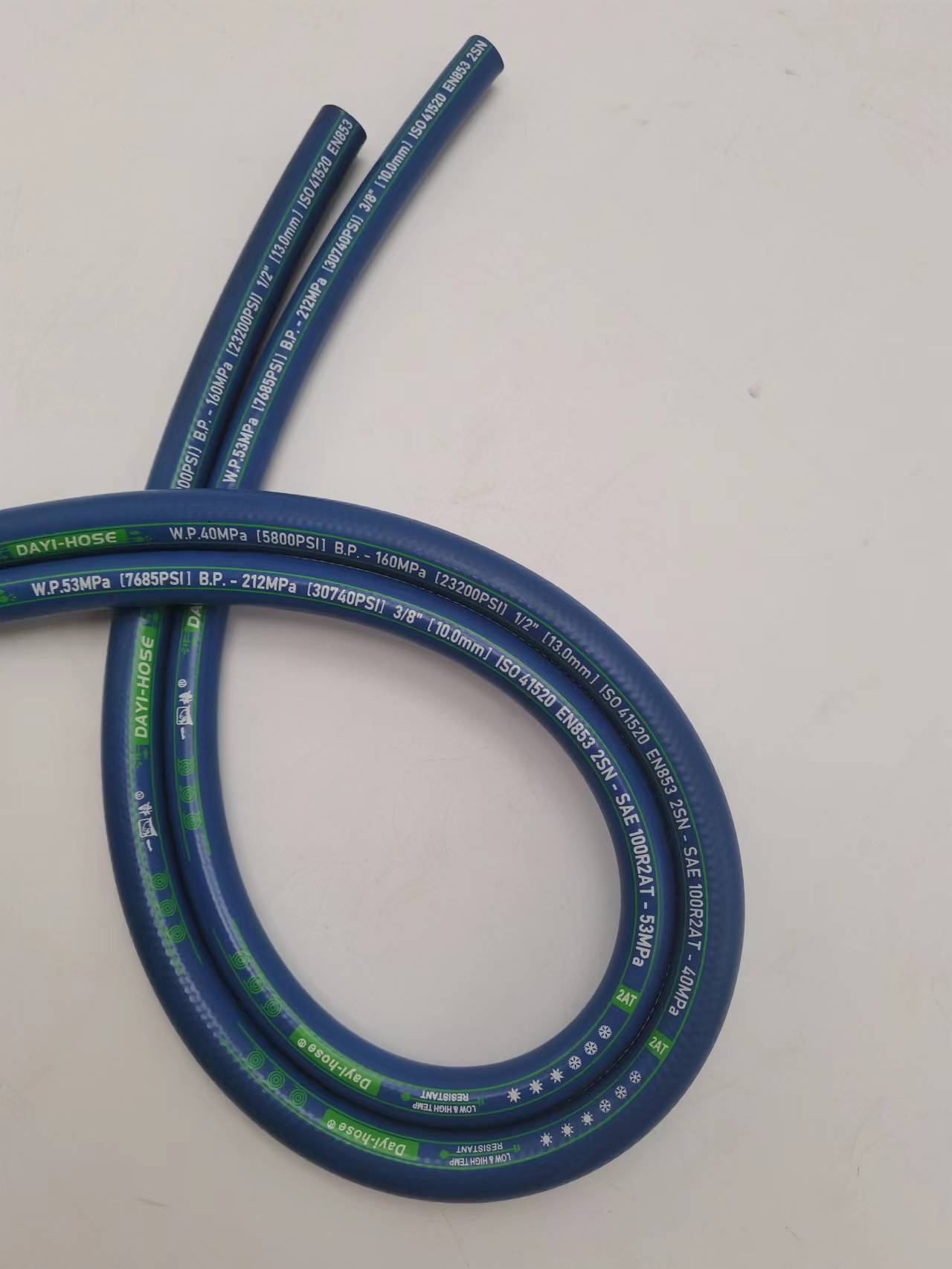335345435
Nov . 07, 2024 13:35 Back to list
Flexible PTFE Hose Pipes for Versatile Applications and Enhanced Performance Solutions
Understanding PTFE Flexible Hose Pipes A Comprehensive Guide
Polytetrafluoroethylene (PTFE) flexible hose pipes have emerged as crucial components in various industries due to their unique properties and versatility. Renowned for their chemical resistance, high-temperature stability, and flexibility, these hoses are extensively used in critical applications, including pharmaceuticals, food processing, and chemical manufacturing.
What is PTFE?
PTFE, commonly known by the brand name Teflon, is a high-performance fluoropolymer. It is distinguished by its exceptional chemical resistance, making it an ideal choice for transporting aggressive fluids, including acids, alkalis, and solvents. The structure of PTFE consists of carbon-fluorine bonds, which contribute to its non-stick properties and resistance to corrosion. As such, when used in hoses, PTFE ensures that the internal surfaces remain unreactive to the fluids being conveyed.
Advantages of PTFE Flexible Hose Pipes
1. Chemical Resistance One of the primary benefits of PTFE hoses is their unparalleled resistance to a wide array of chemicals. Unlike traditional rubber or metal hoses, PTFE doesn’t corrode, swell, or deteriorate when exposed to harsh substances. This characteristic makes PTFE flexible hoses indispensable in industries where chemical compatibility is paramount.
2. High Temperature Resistance PTFE can withstand temperatures ranging from -200°C to +260°C (-328°F to +500°F), allowing it to perform in extreme conditions where other materials may fail. This thermal stability is essential for applications in industries such as aerospace, automotive, and oil and gas, where fluctuating temperatures can affect functionality.
3. Low Friction Coefficient The low friction properties of PTFE facilitate smooth fluid transfer, minimizing pressure drops and enhancing efficiency. This attribute is particularly significant in high-flow applications where resistance can lead to inefficiency.
4. Flexibility Unlike rigid pipes, PTFE flexible hoses can bend and maneuver easily. This flexibility allows for easier installation in tight spaces and contributes to reducing potential stress on the piping system during operation, which can prolong the lifespan of the entire assembly.
ptfe flexible hose pipe

5. Non-Stick Properties PTFE’s naturally non-stick surface prevents material build-up and contamination, making it an excellent choice for sanitary applications. This property is particularly crucial in food processing and pharmaceutical industries, where hygiene standards are stringent.
Applications of PTFE Flexible Hose Pipes
PTFE flexible hoses are used across various sectors due to their versatility. Some key applications include
- Chemical Manufacturing Used for transferring corrosive chemicals, solvents, and gases in chemical plants. - Pharmaceuticals Employed in sterile environments, they are ideal for transporting active pharmaceutical ingredients and other sensitive materials while maintaining purity and preventing contamination. - Food and Beverage These hoses are used to convey food products and beverages safely, ensuring compliance with food safety regulations due to their non-toxic nature. - Aerospace and Automotive In these industries, PTFE hoses are utilized for fuel lines, hydraulic systems, and exhaust systems where high-temperature and high-pressure conditions prevail.
Installation and Maintenance
While PTFE flexible hoses are designed for durability and long service life, proper installation and maintenance are essential to ensure optimal performance. Users should adhere to the manufacturer's guidelines regarding bending radii and pressure ratings to prevent kinking or excessive stress on the hose. Routine inspections for signs of wear, leaks, or damage are critical, particularly in high-demand environments.
Conclusion
In summary, PTFE flexible hose pipes have transformed many industries due to their unique characteristics, including chemical resistance, high-temperature capability, and flexibility. As industries continue to evolve and demand more from their components, the role of PTFE hoses is likely to expand, offering innovative solutions to complex challenges. Investing in high-quality PTFE flexible hoses not only enhances operational efficiency but also ensures safety and compliance with industry regulations, making them an indispensable asset in modern engineering and manufacturing.
-
SAE 100 R17 Black Smooth Cover Hydraulic Hose
NewsMar.07,2025
-
SAE 100 R17 Black Smooth Cover Hydraulic Hose
NewsMar.07,2025
-
SAE 100 R17 Black Smooth Cover Hydraulic Hose
NewsMar.07,2025
-
SAE 100 R17 Black Smooth Cover Hydraulic Hose
NewsMar.07,2025
-
SAE 100 R17 Black Smooth Cover Hydraulic Hose
NewsMar.07,2025
-
steel wire braided hydraulic hose
NewsMar.07,2025



